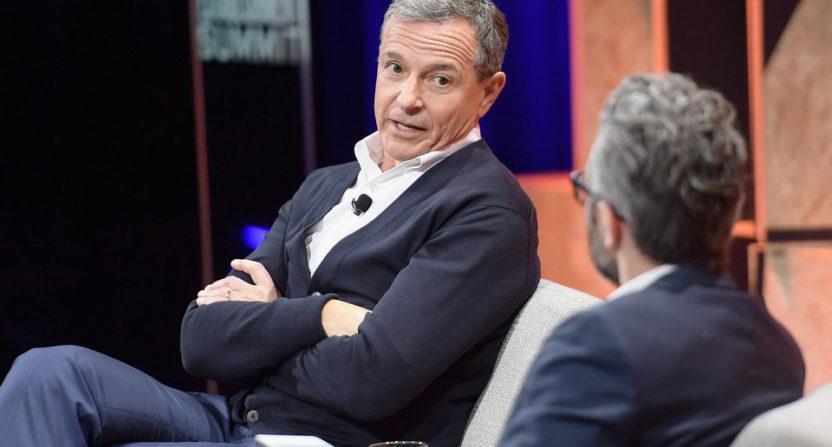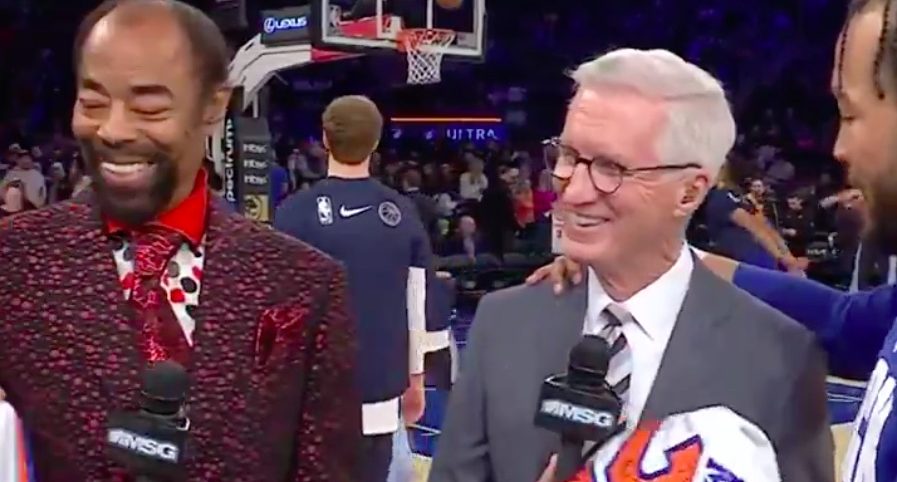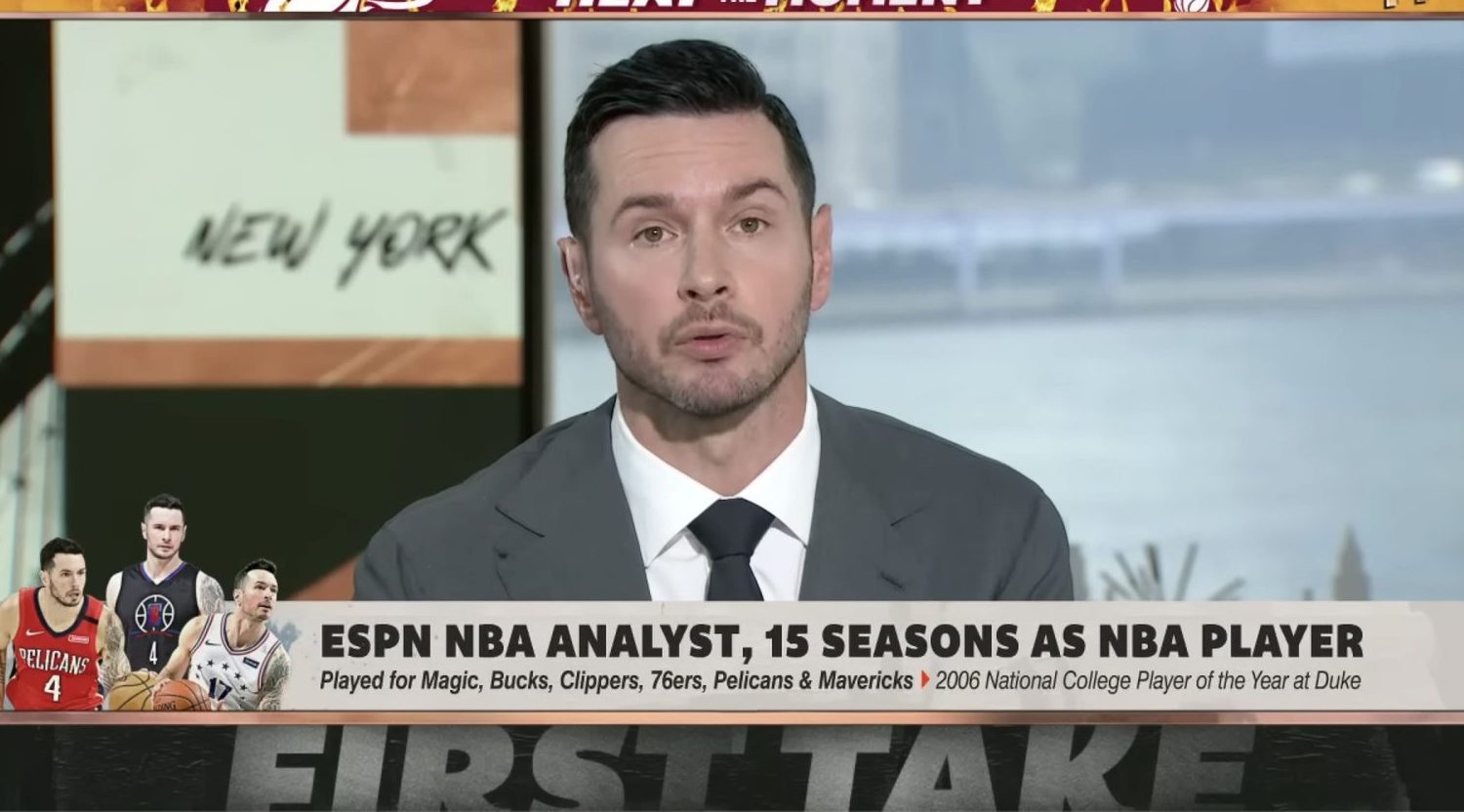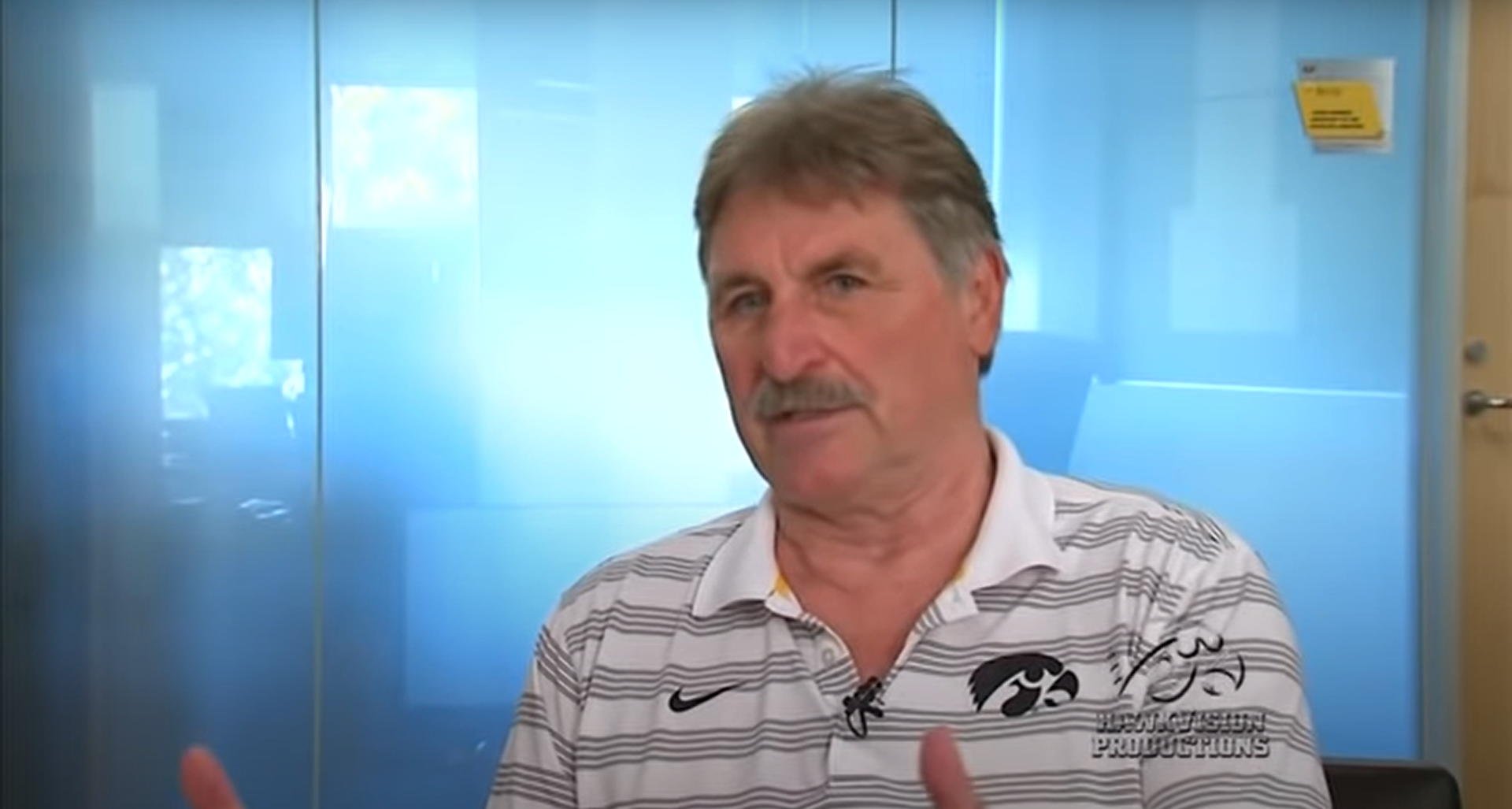Tuesday proved quite the day for major media moguls’ involvement in their sports cable networks, with 21st Century Fox executive chairman Rupert Murdoch called personally about a FS1 subway ad and Disney CEO Bob Iger discussing the controversy over ESPN personality Jemele Hill’s tweets about President Donald Trump.
Iger appeared at the Vanity Fair New Establishment Summit Tuesday and took all sorts of questions from moderator Nick Bilton, discussing gun control and the Las Vegas shootings (where one Disney employee was killed and two were wounded), Disney’s interest in and subsequent decision not to buy Twitter, Disney’s upcoming streaming services, his plans to leave the company in 2019 (for real this time), the idea of him running for president and much more. But it’s his comments on Hill that are perhaps particularly notable from a sports media perspective. Here they are, as relayed by Natalie Jarvey of The Hollywood Reporter:
The executive also fielded questions about ESPN SportsCenter host Jemele Hill’s tweets calling president Donald Trump a “white supremacist.” Her comments led White House Press Sec. Sarah Huckabee Sanders to say that the tweets were a “fireable offense.” Iger said he got involved in discussions about what should be done and ultimately decided that ESPN and Disney should not to take action against Hill. “We certainly have not asked ESPN to be politically leaning,” he said, adding, “Jemele Hill is an ESPN employee and she can’t separate herself for what she speaks publicly or when she uses Twitter.” But he went on to say that it was important to consider Hill’s perspective. “I felt we had to take context into account” and consider “there were a lot of people out there that were outraged” over Trump’s actions.
Here’s another description of Iger’s comments from Vanity Fair‘s Emily Jane Fox:
The White House called for Hill to be fired. ESPN issued a statement making it clear that Hill’s comments did not represent the network and said it was inappropriate for employees to make political statements while representing the company. Still, Hill kept her job.
On Tuesday morning, Disney C.E.O. Bob Iger explained on stage at Vanity Fair’s New Establishment Summit in Los Angeles that the decision was made with context in mind. “There are a lot of people out there who were outraged,” he said. The promise that was given to them in the Constitution, that they fought for in the Civil War and civil rights movement, he said, is “the opposite” of what Americans have seen in the last few months.
“It’s hard for me to understand what it feels like to experience racism,” he added. “I felt we needed to take into account what other people ESPN were feeling at this time and that resulted in us not taking action.”
It’s interesting to hear that Iger got involved in those discussions personally, and that perhaps explains the somewhat-schizophrenic response from ESPN. The network started with a bland corporate statement disavowing her tweets, then reportedly tried to pull her off air before backing down when other hosts declined to fill in (ESPN PR has disputed that, but it may be a debate about what counts as “asked”), took criticism from the left for not supporting her (especially after White House press secretary Sarah Huckabee Sanders called her tweets a “fireable offense“) and from the right for not suspending or firing her, then eventually came out with a “we accept her apology” statement. Iger’s comments, especially in the THR transcription, illustrate that he wasn’t thrilled with Hill’s comments and saw them as potentially problematic for the company, but figured the context was sufficient to not merit firing or punishing her. Thus, his involvement may have led to ESPN coming down less hard on Hill than they might have otherwise.
The latest
But the Hill controversy became national news when Huckabee Sanders weighed in, and thus became something that could potentially affect Disney’s stock price. It’s also perhaps the biggest ESPN controversy ever (in terms of how widely-discussed it became, not in terms of inherent significance), and it ties in to the massive narrative pushed by many (including those affiliated with corporate rival 21st Century Fox) that ESPN is “too political” and too liberal, and that this is causing its financial struggles (despite evidence to the contrary). So it probably was pretty important for Disney’s CEO to get involved in discussions about how to handle it, regardless of the outcome.
Whatever ESPN did with Hill (firing, suspending, supporting or anything else) was going to create blowback from at least one side of the spectrum (and their middle-of-the-road response drew blowback from both sides), and blowback against the company as a whole. Given ESPN’s significance to Disney (read our regular earnings report coverage for proof of just how important the Worldwide Leader is to The Mouse), it seems pretty worthwhile for Iger to be aware of ESPN’s response and involved in determining it. Whether he helped them come up with the right response can be debated, but it’s interesting to hear his explanation here, and to hear that he was actually personally involved in that decision.







